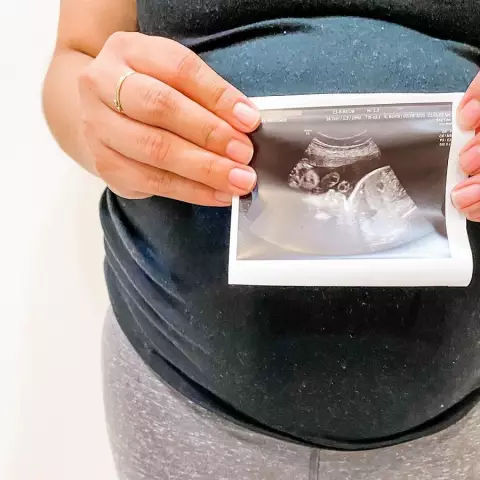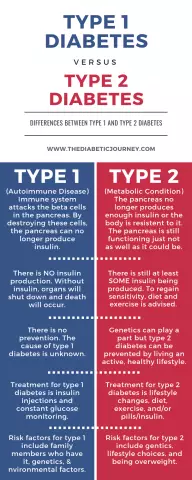- Author Rachel Wainwright wainwright@abchealthonline.com.
- Public 2023-12-15 07:39.
- Last modified 2025-11-02 20:14.
Pregnancy and blood type

Feelings and pragmatism are incompatible things: when meeting two loving people, it is not customary to be interested in blood type. As practice shows - unfortunately. The ideal psychological and sexual compatibility of people in love can be overshadowed by blood incompatibility.
The desired pregnancy is happiness for the spouses. Preparing for the conception of the first child, in addition to the transition to a healthy lifestyle, excluding any bad habits, future parents need to determine blood groups and Rh factors. Here, the concepts of pregnancy and blood type are equally important for the birth of a healthy baby. The positive course of pregnancy is influenced by the compatibility of the parents on this basis and the Rh factor of the mother and the fetus.
Awareness of the problems of blood group compatibility during pregnancy will help prevent possible negative consequences. Regular blood sampling from a pregnant woman allows antibodies to be detected in time, and medical intervention will help maintain the health of the fetus.
Blood group compatibility during pregnancy
Belonging to a certain blood group in a person begins to form even in the uterine period. From the moment of conception, the child receives the blood of the parents in equal shares. At first, the baby has all four groups in different percentages. In this case, the parental group dominates, and most often the child receives the group of the father or mother.
The question of blood compatibility during pregnancy is of great importance not only from the point of view of the Rh factor, but also from the group. It's all about the biochemical characteristics of the blood of different people, due to differences in the structure of its proteins.
Pregnancy and blood type do not cause complications in the following situations:
- The partners have the same groups;
- The mother has a fourth;
- The father has the first group.
Rh-positive and Rh-negative factors are determined by the presence or absence of a specific D antigen on the surface of red blood cells. The presence of this protein makes a person Rh positive. If it is absent, then the person has a Rh negative blood group.
One of the tests done during pregnancy determines the compatibility of the Rh factor between the mother and the fetus. A woman with a negative blood group may have complications during pregnancy and childbirth.
Negative blood type during pregnancy
A negative blood type during pregnancy does not always pose a threat to the fetus.
- In a situation when partners with a negative blood group also have a negative Rh factor, the blood of the fetus and the mother are similar, there will be no conflict;
- In rare cases, when a Rh-positive father and a Rh-negative mother have a child with a Rh-negative blood group, the pregnancy will also pass without complications;
- If the mother has a positive blood type, and the baby has a negative one, there will be no protein incompatibility.
Problems arise when a Rh-negative mother has a positive fetus. The blood in the woman's body can begin to produce antibodies to destroy the foreign proteins of the baby.
If a Rh negative woman is pregnant for the first time, and before that she had no abortions or miscarriages, do not worry. The blood in the mother's body has not yet encountered foreign erythrocytes and has not learned to “fight” with them.
Women with a negative Rh factor have a blood test to determine the content of antibodies. Close attention is paid to those pregnant women with a negative blood group in whom antibodies were found.
The timely appointment of an injection of anti-D-immunoglobulin by a gynecologist, which is safe for both the mother and the child, allows the prevention of a conflict between the blood of the mother and the fetus.
Conflict of blood groups during pregnancy
Blood group conflict during pregnancy is as serious a problem as Rh conflict. This situation can arise when the mother and the unborn child have different groups.
If a woman has a blood type:
- The first or the second - the conflict is possible with the fruit of the third group;
- The first or third - there may be a conflict with the second blood group in the baby;
- First, second or third - a conflict is likely if the child has a fourth group.
The most dangerous combination is when a woman with the first blood group carries a baby with the second or third. In this case, the development of hemolytic disease in a newborn is most likely.

The risk group includes women who have had a miscarriage or abortion, have undergone a blood transfusion, already have a child with mental retardation or hemolytic disease.
The development of a group immunological conflict is possible in married couples with the following combinations of blood groups:
- A woman with O (I) and a man A (II), B (III) or AB (IV);
- A woman with A (II) and a man B (III) or AB (IV);
- A woman with B (III) and a man with A (II) or AB (IV).
Pregnancy and blood type is an important issue that all young couples should pay attention to before they decide to conceive. And if you are already pregnant, do not postpone going to the antenatal clinic. Timely registration will help to identify the likelihood of the risk of conflicts by blood group and Rh factor and will be the key to a successful pregnancy.
YouTube video related to the article:
Found a mistake in the text? Select it and press Ctrl + Enter.






